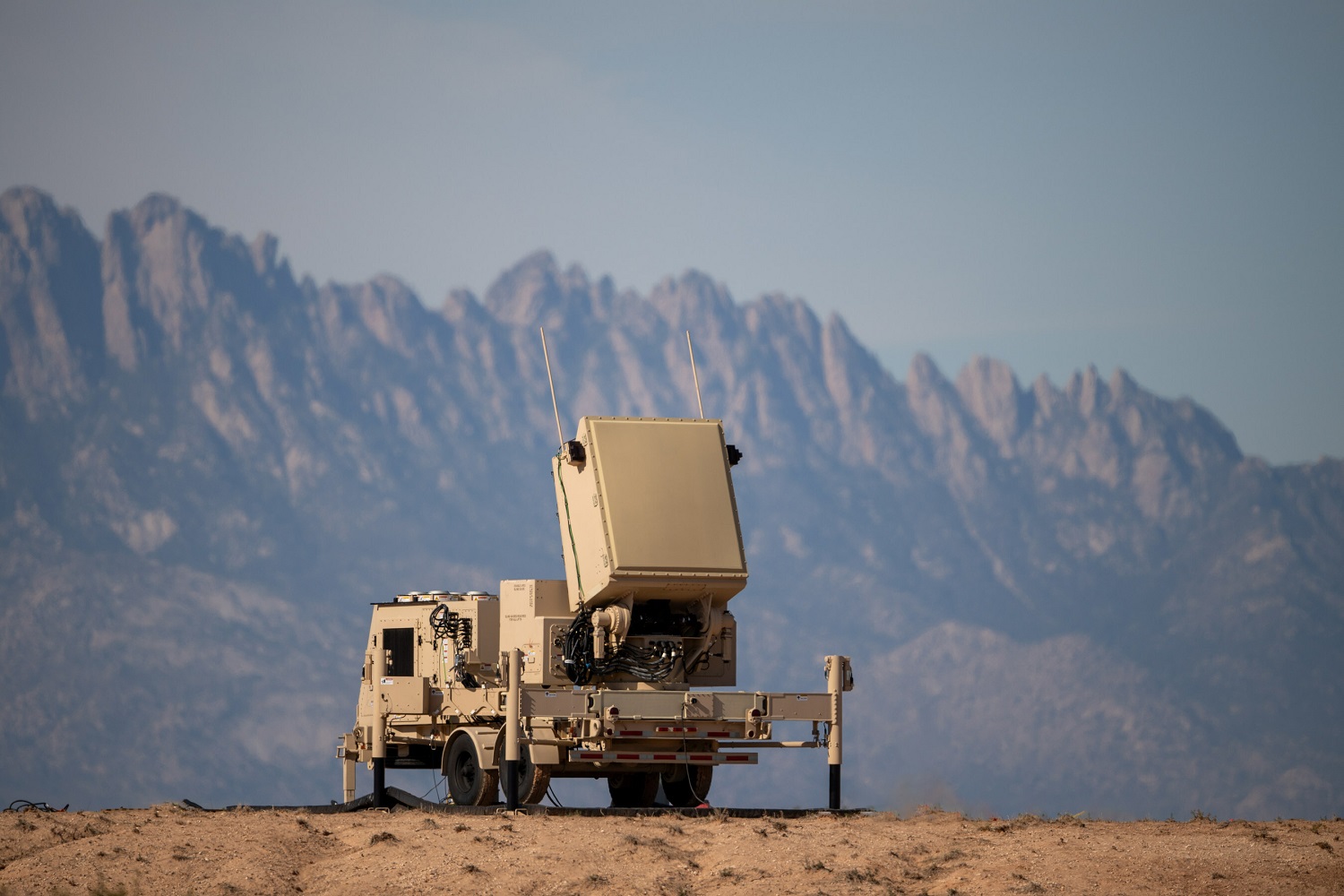Raytheon, an RTX business, in partnership with the U.S. Air Force Research Laboratory’s Strategic Development Planning and Experimentation (SDPE) office and Kongsberg Defence & Aerospace, demonstrated the operational performance and readiness of the GhostEye® MR advanced medium-range sensor for the National Advanced Surface to Air Missile System (NASAMS) during an extended exercise at White Sands Missile Range. GhostEye MR expands NASAMS’ combat-proven capabilities against enemy aircraft, unmanned aircraft systems, and cruise missile threats. The radar was designed and developed by Raytheon, primarily through internal research and development investments. During the recent exercise, GhostEye MR was successfully integrated with NASAMS’ Air Defense Console and the Battlespace Command and Control Center (BC3), a command-and-control element used by the U.S. Air Force.
“The team’s success demonstrates that GhostEye MR can meet the needs of the U.S. Air Force. Air bases around the world face a growing array of sophisticated airborne threats, and this exercise marked a significant step toward fielding an integrated capability for air base air defense,” said Tom Laliberty, president of Land & Air Defense Systems at Raytheon.
“This experiment showed that GhostEye MR is a viable sensor option for integrated air and missile defense. The radar clearly demonstrated its ability to be rapidly deployed and detect and track live targets precisely at longer ranges, providing increased standoff and decision-making time,” said Jim Simonds, U.S. Air Force Air Base Air Defense Program Manager at the U.S. Air Force Research Laboratory.

This demonstration also builds on last year’s successful air base air defense experiment in Andøya, Norway, that showcased NASAMS’ ability to engage and intercept various aerial threats using multiple Raytheon missile types and Kongsberg Defence & Aerospace’s Fire Distribution Center. In August of last year, Raytheon was awarded its first government contracts to advance development and assessment of GhostEye MR. A member of Raytheon’s GhostEye family of sensors, GhostEye MR provides increased range and altitude coverage to expand the defended-area capabilities of NASAMS. The radar leverages commonality with the Lower Tier Air and Missile Defense Sensor, or LTAMDS – currently advancing through development for the U.S. Army.
Raytheon, an RTX business, is a leading provider of defense solutions to help the U.S. government, our allies and partners defend their national sovereignty and ensure their security. For more than 100 years, Raytheon has developed new technologies and enhanced existing capabilities in integrated air and missile defense, smart weapons, missiles, advanced sensors and radars, offensive and defensive cybersecurity tools, interceptors, space-based systems, hypersonics and missile defense across land, air, sea and space. RTX is the world’s largest aerospace and defense company. With more than 180,000 global employees, we push the limits of technology and science to redefine how the company connect and protect our world. Through industry-leading businesses – Collins Aerospace, Pratt & Whitney, and Raytheon and developing next-generation technology solutions and manufacturing to help global customers address their most critical challenges. The company, with 2022 sales of $67 billion, is headquartered in Arlington, Virginia.













